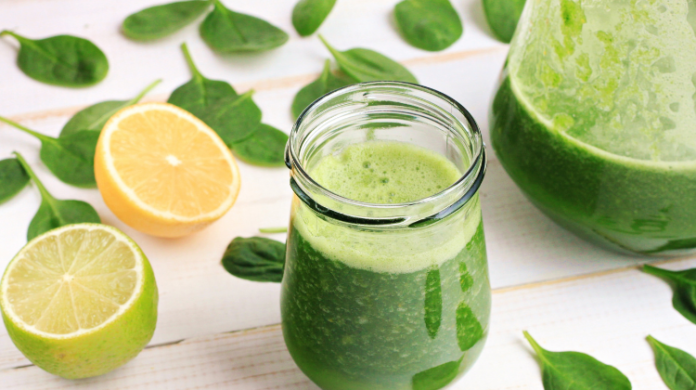Let us make some vegetable powders because why not? If raw vegetables offer health benefits to our body, vegetable powders have it too. Like fruits and vegetables, a vegetable powder still carries nutritional value, which may help control or manage cardio health, aid digestion, and keep the brain function healthy.
As said by Lisandra Fields, whose articles featured on many health websites, a vegetable powder also contains antioxidants and vitamins, serving the same purpose as whole vegetables, aiding better health.
However, how can you dehydrate vegetables? Can you mix it with powdered fruits? How can you keep those dehydrated vegetables versatile to use?
What are the Benefits of Vegetable Powder
Before we dig deeper into the health benefits of a vegetable powder, let us understand what this powder means. This powder is characterized as ground and dried or dehydrated vegetables, which leads people to refer to it as dehydrated vegetables, dried vegetables, or dehydrated powders.
It is composed of more than one vegetable mixed together. While most people are using diverse vegetables, some are only using leafy greens as their ingredients.
The dehydrated vegetable powder is sometimes paired with dehydrated fruits such as tomato powder, or with mushroom powder when making a salad. You can also mix it with water, juice, and/or smoothies. As for benefits, as long as your ingredients are organic, a dehydrated powder can help you acquire some calories, carbohydrates, protein, iron, vitamin A, vitamin C calcium, and potassium.
Healthy, Controlled Blood Pressure
Calcium and potassium are two common contents found in vegetables, especially the green ones. These are known to have a great association with healthy hearts. Indeed, there was a study showing that people who were having a dried vegetable intake (one serving daily) had a decrease both in their systolic and diastolic.
Immune System Support
Since a fine powder of mixed vegetables contains various vitamins and minerals, it has a powerful tool to keep your immune system healthy and fight against some chronic diseases. For instance, vitamin A comes with anti-inflammatory properties. The anti-inflammatory effects can further enhance your immunity, giving you more resistance to infections.
Also, both Vitamin K and C are good antioxidants, great in fighting against cell-damaging free radicals (oxidation).
Who Should Go for Greens Powder
Almost anyone could go for a vegetable greens powder, especially if you made it by yourself. However, if you buy it from stores as an over-the-counter supplement, you must be more cautious.
Aside from that, some greens powder supplements may contain higher amounts of minerals or substances that are not recommended for some health conditions. If you are undergoing treatment or have a serious medical condition, having a consultation with a doctor is a good practice.
After all, powdered veggies are not a replacement for whole foods, but should only provide more benefits instead of replacement.
Nevertheless, if you think you need some suggestions, the page Healthcanal.com/nutrition/best-greens-powder is a helpful place to start.
How to Make Vegetable Powder (and Store it)
Making this powder is almost the same as making dehydrated food. To begin with, you must start with the dehydrating process with your preferred or available dehydrator/oven. Make sure the oven door is always closed to maximize the dehydration process.
Remember that you can use a single vegetable with green onion and make an onion powder, or mixed vegetables such as carrots, beans and peas, cauliflower, broccoli, and brussels sprouts.
Instruction:
- Pour your dehydrated ingredients into the blender with boiling water. After you prepare your dried veggies, you have to grind them to become fine.
- Check the ground veggies. Get a bowl or a jar to where you can transfer the ground vegetables. Keep the ones that are not thoroughly ground. You will have to grind them again to become fine.
- Re-grinding. Once you transfer the powders, all you have to do is put back the vegetables that were not ground very well into the blender and have them ground again.
Storing Powdered Vegetables
If you want to store your dried fine vegetables for later consumption, you simply prepare an airtight container. Do not use zip-top plastic bags because it allows air to permeate after a certain period. Good examples of airtight containers are a mylar storage bag and a mason jar.
Also, you must keep it in a dark and cool place because it should not get any kind of moisture.
Best Ways to Use Veggie Powder
There are various ways to use vegetable powders, and here are some ideas to help you maximize it through a variety of foods.
- Mix with baked goods. You can certainly add some powder to baked foods such as cookies and brownies. You cannot taste the vegetables, but their nutrition is added to them.
- Mix with your meal. You can add some amount of dehydrated vegetable powder with scrambled eggs and Smoothies. You can also sprinkle some in your salad, especially if you have an onion powder, or put it inside your bread sandwich.
- Combine it with your side dish or additional snack. If you want to serve yourself a creamy soup, you can grab some milk and add the powders to it, along with other vegetables included in your ingredients. You can also prepare collard greens pasta with beet greens.
Aside from that, you can build your own seasoning and vegetable capsules.
Conclusion
There is no reason for you to be unable to get most of the nutrients your body needs. Indeed, you can take advantage of their benefits even more, as you can make your own vegetable powders with the freedom to choose the ingredients.

















